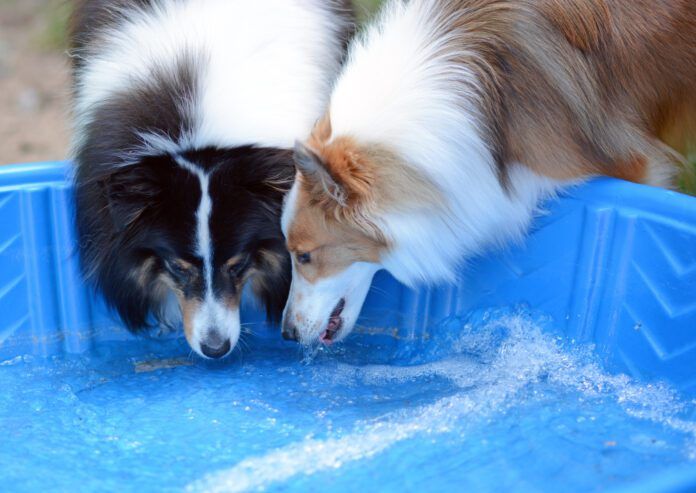Dog papillomas are warts. These are benign little growths that are usually pink or pale in color with a cauliflower-like surface, although they can be smooth. When they are caused by a virus, they are called viral papillomas. When they occur in the mouth, they are called oral papillomas. Some warts, like the ones that develop on older dogs in random places, are not necessarily caused by a virus. These are called idiopathic non-viral papillomas or squamous papillomas.
Viral dog papillomas are contagious from dog to dog. With the dawn of dog parks and doggy day care veterinarians are seeing more cases of viral dog papillomas, especially oral papillomas in dogs. The most common papilloma virus, CPV1, is spread by direct contact with an infected dog or by sharing toys, bowls, and bedding. They are one of the reasons communal water bowls for dogs should be avoided. A break in the skin or oral mucosa is required for successful transmission. The incubation period (time from exposure to onset of symptoms) is one to two months.
Puppy Warts
Viral papillomas are most common in young dogs (under 2 years of age) and usually occur in groups or clusters in the mouth or on the muzzle, lips, eyelids and between the toes. These puppy warts are rarely a problem, most cases are mild and self-resolve within two months, which means that as long as the warts are not painful to your dog and don’t become infected, no treatment is required. Just remember they are contagious, so keep your dog away from other dogs while you wait for resolution.
Dog Papilloma Treatment
If the viral papillomas are still there after three months, treatment should be considered. Surgical removal or cryotherapy (freezing them off) are usually the treatments of choice. Other treatments that have been tried with varying success include a topical medication called imiquinod (helps the immune system fight the virus), interferon-alpha (another immune-modulating medication), azithromycin (an antibiotic that has been shown to help in some cases), cimetidine (a stomach acid-reducing medication which has shown some promise as a papilloma treatment), and, most recently, a medication called tigilanol tiglate (marketed as an injectable treatment for mast cell tumors but some suggestion it may be useful in a topical gel form for viral papilloma treatment). Torigen is a pharmaceutical company in Farmington, CT, specializing in immunotherapy for pets. They can make a vaccine for your dog using cells from your dog’s own papillomas.
Lastly, there is some thought that simply crushing one or two of the warts may help stimulate a bigger natural immune response by the dog’s body. Don’t try this yourself, however. See your veterinarian who will guide you toward the best papilloma treatment choices for you and your dog.







Very timely! Just found one on my dog’s lower lip on Friday – our vet appointment is tomorrow. He is 21 months old and goes to two different doggie day cares :-/
How timely indeed. I just experienced this with our 5 year old male pit mix. There was a month wait for the surgery after the diagnosis so I decided to try some things. I gave him thuja 2 doses 2 weeks apart, 500 mg. Lysine 2x a day and applied vitamin e to the papiloma under his chin 2x day. At one point it fell off but I continued with the treatments. It is gone and the surgery was cancelled.